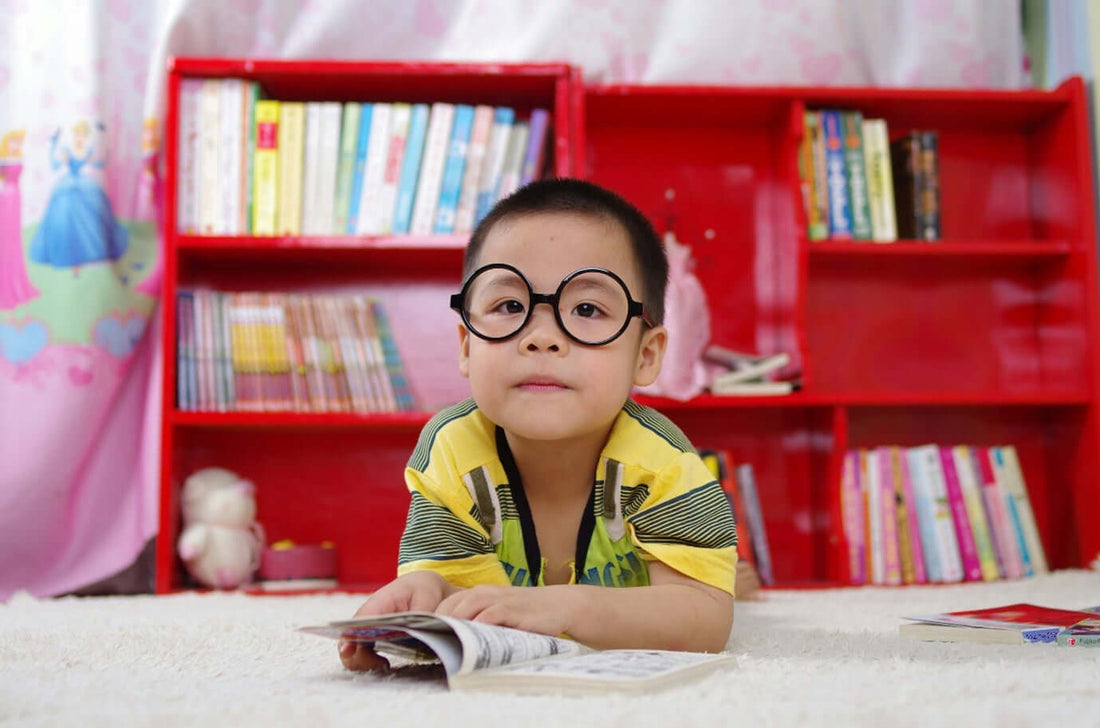Emotional intelligence (EQ) is one of the most important skills that children can develop. It directly impacts their ability to navigate life’s challenges, build meaningful relationships, and make sound decisions as adults.
From a young age, a strong EQ helps children manage stress, communicate effectively, and understand both their own emotions and the emotions of others. In fact, studies show that emotional intelligence in childhood can be a better predictor of success in adult life than traditional measures like IQ.
In this blog, we’ll explore how different types of play contribute to the development of EQ in children and how parents can play an active role in supporting this crucial aspect of their child’s growth.
Understanding Emotional Intelligence
While emotional intelligence naturally develops over time, play is a key vehicle through which children learn and refine these skills. Play not only nurtures a child’s creativity and imagination but also serves as a powerful tool for emotional growth. Different types of play provide varied opportunities for children to practice and strengthen their emotional intelligence and involves several core competencies:
- Self-awareness: Recognising one’s emotions and their impact on thoughts and behaviours.
- Self-regulation: Managing one’s emotional responses in healthy ways.
- Empathy: Understanding and sharing the feelings of others.
- Social skills: Building and maintaining positive relationships with others.
- Motivation: Using emotions to achieve goals and persist through challenges.
The Impact of Play on Emotional Intelligence
Play offers a safe and creative environment where children can express themselves, explore different roles, experiment with emotions, and learn social cues. Below, we’ll discuss how different forms of play contribute to the development of emotional intelligence.
- Pretend Play and Role-Playing
Pretend play, also known as imaginative or fantasy play, is one of the most powerful types of play for developing emotional intelligence. In pretend play, children take on different roles, act out various scenarios, and immerse themselves in imaginative worlds. This type of play encourages emotional expression, empathy, and perspective-taking.
- Building Empathy: When children pretend to be different characters—whether it's a parent, a doctor, or a teacher—they practice stepping into someone else’s shoes. This role-play helps them understand how others might feel in various situations, promoting empathy.
- Exploring Emotions: Pretend play allows children to express a wide range of emotions in a non-threatening way. They might act out situations where a character feels sad, happy, or angry, helping them to process their emotions and understand them more deeply.
- Problem-Solving: Role-playing often involves navigating conflicts or challenges, helping children practice self-regulation and conflict-resolution skills. For example, children may act out a situation where two characters must share a toy or resolve a disagreement, learning how to negotiate and manage difficult emotions.
Parents can support pretend play by providing open-ended toys (such as dolls, action figures, and dress-up clothes) and creating opportunities for imaginative scenarios. Encourage children to tell stories, ask open-ended questions, and provide gentle guidance when needed to help them explore different emotional experiences.
- Interactive Play with Peers
Social play, which involves children playing with others, is essential for developing social skills and emotional intelligence. Through interactive play, children learn important lessons in cooperation, negotiation, and emotional regulation.
- Cooperation and Sharing: Playing games that require cooperation, such as building a puzzle together or playing a team sport, teaches children how to share, take turns, and collaborate. These activities help them build positive relationships and develop social awareness.
- Conflict Resolution: Conflict is an inevitable part of any social interaction. In group play, children often experience disagreements or differences in opinion, and through these experiences, they learn how to manage emotions such as frustration, disappointment, and anger. Over time, they gain a sense of how to resolve conflicts in a healthy, respectful manner.
- Understanding Social Cues: During interactive play, children practice reading and responding to social cues, such as body language and facial expressions. This helps them develop the social awareness component of emotional intelligence, which is essential for building relationships and understanding others.
Parents can encourage social play by organising playdates or enrolling children in group activities like team sports, art classes, or cooperative games. Observing their interactions with peers gives parents insight into how their child handles emotions in social situations and provides opportunities for guidance and support.
- Physical Play and Active Movement
Physical play, which includes activities such as running, climbing, dancing, and sports, not only supports physical development but also has a significant impact on emotional well-being. Active play helps children manage emotions by releasing energy and reducing stress.
- Self-Regulation: Physical play provides an outlet for children to express themselves physically, helping them learn how to regulate their energy and emotions. For example, engaging in a physical activity like running or dancing can help a child calm down when feeling overstimulated or frustrated.
- Mood Enhancement: Physical play also promotes the release of endorphins, which improve mood and reduce feelings of anxiety or sadness. This helps children understand the connection between physical movement and emotional well-being.
- Building Confidence: As children master physical skills—whether it’s learning to ride a bike, jump rope, or climb—they gain a sense of accomplishment and self-confidence. This self-assurance positively impacts their emotional intelligence by fostering a sense of independence and resilience.
Parents can support physical play by encouraging outdoor activities, sports, and games that promote movement. Simple activities like jumping on a trampoline, playing tag, or engaging in yoga can all help children connect with their emotions through movement.
- Creative Play (Art, Music, and Crafts)
Creative play, including activities like drawing, painting, singing, and crafting, provides children with a medium through which they can express their emotions and reflect on their inner worlds.
- Emotional Expression: Art and music allow children to express feelings that might be difficult to verbalise. Whether it’s creating a drawing that represents how they’re feeling or composing a song that reflects their mood, creative play helps children process emotions in a tangible way.
- Self-Reflection: Engaging in creative play encourages self-reflection, which is a key component of self-awareness. Children may reflect on their emotional experiences as they create, which helps them better understand their feelings and how to manage them.
- Stress Relief: Many creative activities have a calming effect on children. Colouring, painting, or playing an instrument can help children relax and focus, reducing anxiety and promoting emotional balance.
Parents can encourage creative play by providing art supplies, musical instruments, or opportunities for imaginative creation. The process of making art, without the pressure of achieving a particular outcome, allows children to freely explore and express their emotions.
How Parents Can Support Emotional Development Through Play
Parents play a crucial role in fostering emotional intelligence through play. Here are some ways parents can support this process:
- Model Emotional Expression: Children learn by observing their parents. By modelling healthy emotional expression, parents can teach children how to identify and articulate their feelings. For example, saying things like, “I’m feeling frustrated right now, so I’m going to take a few deep breaths,” shows children that it’s okay to express emotions and that there are healthy ways to cope with them.
- Create a Safe Play Environment: A safe and supportive play environment encourages children to explore their emotions without fear of judgment. Allow children to play freely and express themselves in their own way, offering guidance when necessary.
- Encourage Emotional Conversations: Engage children in conversations about their emotions, especially after play sessions. Ask questions like, “How did that make you feel?” or “What could we do to make things better when we feel angry?” This promotes self-awareness and emotional regulation.
- Provide a Variety of Play Opportunities: Encourage children to play more and offer them access to various types of play, such as educational learning play, physical play, creative play, and interactive play. Each type provides unique emotional learning opportunities that help children build their emotional intelligence.
Play is an essential tool in fostering emotional intelligence in children. Through various types of play—whether it’s pretended play, physical play, interactive play, or creative play—children learn to understand, express, and regulate their emotions. As they navigate these experiences, they also develop key social skills, empathy, and resilience that will serve them throughout their lives. By supporting and encouraging emotional development through play, parents help build a strong foundation for their children’s future well-being and success.






